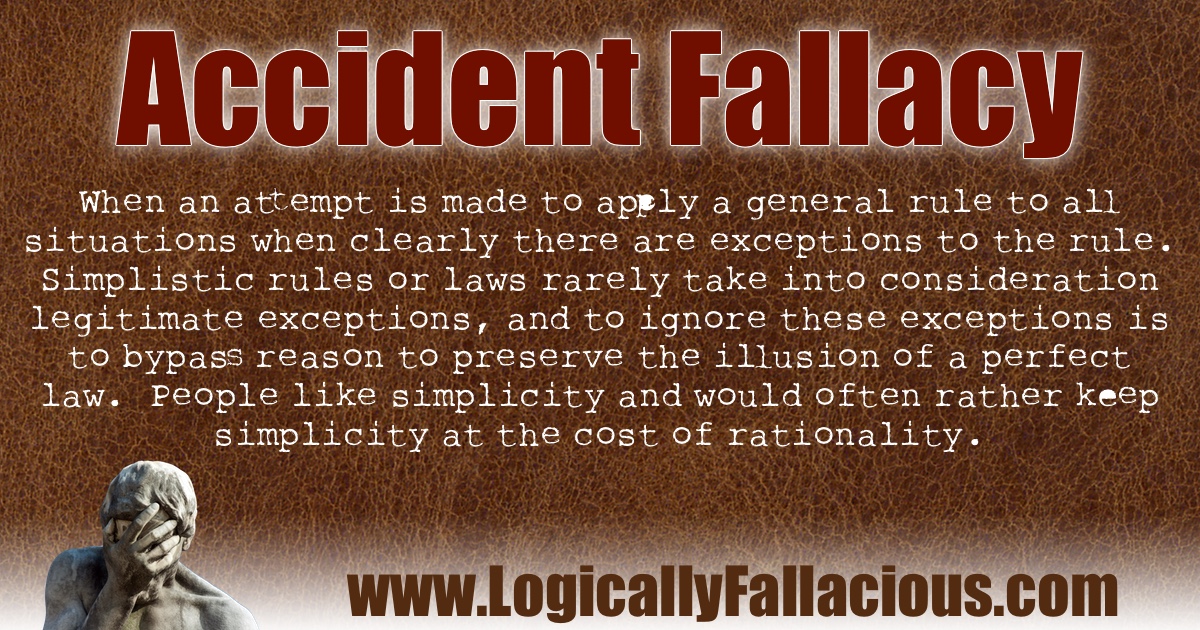a dicto simpliciter ad dictum secundum quid
(also known as: destroying the exception, dicto secundum quid ad dictum simpliciter, dicto simpliciter, converse accident, reverse accident, fallacy of the general rule, sweeping generalization)
Description: When an attempt is made to apply a general rule to all situations when clearly there are exceptions to the rule. Simplistic rules or laws rarely take into consideration legitimate exceptions, and to ignore these exceptions is to bypass reason to preserve the illusion of a perfect law. People like simplicity and would often rather keep simplicity at the cost of rationality.
Logical Form:
X is a common and accepted rule.
Therefore, there are no exceptions to X.
Example #1:
I believe one should never deliberately hurt another person, that’s why I can never be a surgeon.
Explanation: Classifying surgery under “hurting” someone, is to ignore the obvious benefits that go with surgery. These kinds of extreme views are rarely built on reason.
Example #2:
The Bible clearly says, “Thou shall not bear false witness.” Therefore, as a Christian, you better answer the door and tell our drunk neighbor with the shotgun, that his wife, whom he is looking to kill, is hiding in our basement. Otherwise, you are defying God himself!
Explanation: To assume any law, even divine, applies to every person, in every time, in every situation, even though not explicitly stated, is an assumption not grounded in evidence, and fallacious reasoning.
Exception: Stating the general rule when a good argument can be made that the action in question is a violation of the rule, would not be considered fallacious.
The Bible says, “Thou shall not murder,” therefore, as a Christian, you better put that chainsaw down and untie that little kid.
Tip: It is your right to question laws you don’t understand or laws with which you don’t agree.

References:
Bile, J. (1988). Propositional justification: another view. Contemporary Argumentation & Debate, 9, 54–62.